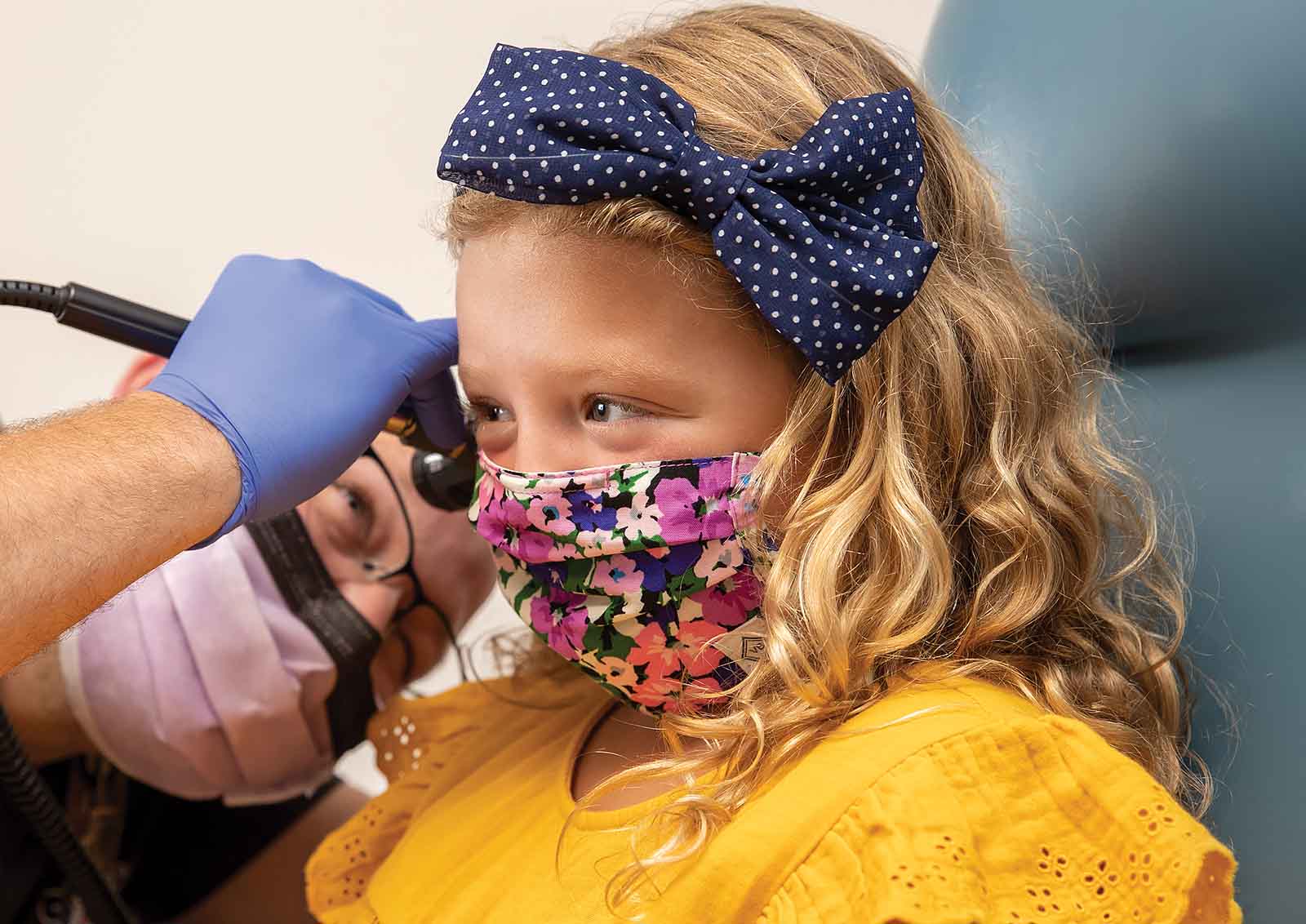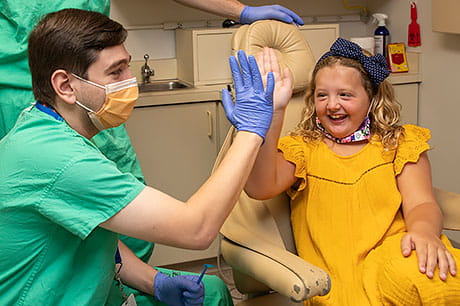Preparing kids for a doctor’s visit
By Kimberly Adler-Morelli
A child life specialist offers advice on helping your child have a better healthcare appointment.
Does the promise of a post-visit sticker fail to make your child’s medical appointments calm and productive?
Tracey Craddock, certified child life specialist at Geisinger Janet Weis Children’s Hospital, explains how to help your kids stay relaxed from scheduling to sticker selection.

1. What should I tell my child to ease their anxiety before a scheduled or emergency visit?
“You really need to consider your child’s age and developmental level,” advises Ms. Craddock. “Do they need a lot of information or the minimum?”
If the experience will be brand new — like a first trip to the ER — compare the upcoming visit to a past appointment. For example, tell your child that the nurses and doctors will listen to their heart and check their ears just like their family physician does.
Age-appropriate books on topics like getting a cast or X-ray can also break the experience down to their level. Finally, be honest with your child. If you don’t know the answer, say so. But tell your child you can ask the nurse or doctor when you get there.
2. How can I prep my child for a vaccine?
Again, honesty is the best policy. An injection can be described a “pinch” that will only hurt for a couple seconds.
The Centers for Disease Control and Prevention also recommends:
- Bring a favorite comforting toy, blanket or book.
- Distract your child with a silly song, story or game like “I Spy.”
You can also empower your kids to give them a sense of control. Would they like to watch or not watch the injection? Do they want to use their right or left arm? Do they want to squeeze your hand? It can also be helpful to let the child know what’s expected of them, such as to be very still.
3. During the visit, is it better to hold a small child in my lap?
If your child is comforted by being held, do so. Be gentle but firm and don’t overpower them. For an injection or procedure, ask your care team what position to use for comfort.
4. If I'm taking a child to the ER, they’re likely upset. What’s the best way to calm them?
Ms. Craddock says, “Acknowledge and validate your child’s feelings. Tell them it’s okay to be upset and scared, and you’ll make sure they know what’s going to happen.” Talk about ways to make them feel less scared — maybe by reading a book, playing a game or listening to music. And bring along a comfort item — a blanket, stuffed animal or favorite toy.
5. After the visit, should I reward the child for good behavior? Is it okay to promise them a treat if they do well?
Sure, you can praise them for doing something that was difficult for them, whether it’s just verbal acknowledgment or by letting them pick a meal, book or movie as a treat. But avoid using phrases like “Don’t cry.” Coping looks different for different people. If your child needs a blood test and holds still for it, praise that. Even if they cried through it, find the thing they did well and acknowledge it.
6. Any other suggestions for after the visit?
A post-visit recap can be a great tool. Give the child an example of what they did well. Ask them what would make the next time better. You might discover something you can work on for the next appointment.
Toy medical kits are also great processing tools for young kids. Giving them the chance to “play out” the experience helps them make sense of what happened and gives them control in a situation that was otherwise out of their control.
This story originally appeared in PA Health, our quarterly full-color magazine filled with wellness tips, inspiring stories and more.
Sign up to have PA Health sent to your mailbox or inbox 4 times a year, for free.
The wellness you need, in a style you’ll love — delivered.

